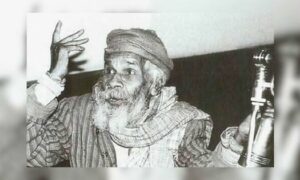
The Rest of Our Lives starts with the protagonist, Tom Layward, admitting to being cheated on by his wife twelve years ago. He introduces the other man and lays out the reasons for his wife’s infidelity – all ultimately boiling down to a misstep, an affair that his wife Amy never really wanted, evident in how short-lived it was (only three months). Amy comes clean to Tom – she has “highly developed guilt feelings” – but instead of a clean slate, the writing has been sloppishly rubbed off, leaving imprints that superimpose themselves on every memory of the past and visions of the future.
Author Ben Markovits establishes Tom’s defeat from the word go. He is resigned to fate and middle age. The marriage is “C minus” and even aiming for a “B plus” life is an ambition that has little chance of fulfilment. Tom’s resignation is understandable – he has never really come to terms with his wife’s affair and after long years of bringing up the children (the son is in college and the daughter is preparing to leave the nest), he finally reckons with his feelings. Nothing is right at home, and his disappearance, or going on a road trip, will make little difference to Amy or their marriage.
On the road
So far so good. I was reminded of Miranda July’s provocative novel All Fours, which I read a few months ago.
However, unlike All Fours, which makes a case for its middle-aged protagonist’s lunacy very convincingly, The Rest of Our Lives gives up almost immediately.
The initial part of the novel displays great promise. I’m not dismissive of the White Man’s feelings or whatever their midlife crisis might be but it is hard to sympathise with someone who seems to have made his mission to be miserable. Besides the affair which hits him badly, the only other thing that Tom seems to be suffering from is boredom. And yet, he is not bored – or at least energetic enough – to do something really exciting. A professor of law and chagrined as a low-ambition guy, this could’ve been his chance to show his wife what he really could be. There are some vague legal complications Tom gets himself into but the author prevents Tom was messing with the law.
Tom thinks of dedicating the children-are-gone phase of his life to writing a book about playing basketball around the country and writing about the people he meets on the courts. While he does shoot the hoop whenever he can, he doesn’t strike up a single interesting conversation! I struggled to understand why Markovits would saddle his protagonist with literary ambitions. These conversations could have been insights into the “male loneliness epidemic” and white masculinity; however, all I found were intellectually starved, podcast-like dialogues. Sample this: “I never had a problem you couldn’t solve by going to the gym.” Even at its most uninspired, this is not a sentence I would expect to read in a Booker Prize-shortlisted novel. Tom’s book is a dud before he has started writing it.
Even the “road trip” bit of the novel – happily highlighted in the blurb – is not given adequate attention. There are some sweet moments Tom shares with his daughter as he drives her off to college, but once she’s dropped off, Markovits struggles to keep Tom’s adventurous spirit. We do not meet any interesting characters, there are no stories or accidents, and the road becomes no one – Tom could’ve flown everywhere, or worse still, set up Zoom calls with no injury to this subplot.
Where to?
He does not even think to sleep with his single ex-girlfriend when he turns up at her home on the trip. She graciously offers to pull out the sofa bed for him, takes him out with her friends, and even broaches the topic of sex. She decides she’s too tired for it and he assures her that sleeping with her was never the intention. Though, of course, it is possible to have perfectly platonic relationships with your exes, one has to wonder what the point of the detour vis-à-vis the plot might have been. The reader comes back with nothing, except perhaps that Tom might have had a happier marriage with another woman – a fantasy that holds little opportunity in the story and which could have been true for any unhappily married character.
I was also confused about Tom’s politics. The “friends” he meets on the road are rarely that – he had lost touch with most of them and when they resurface in his life after all these years, their relationship is defined by salaries and degrees, cribbing about expensive lunches, having illicit affairs with their students, or believing that the NBA is discriminatory towards its white players. Tom takes their concerns lightly and sort of stands up against the mad NBA rant – but what I failed to grasp is his own politics.
He barely says anything, though his daughter’s taunts about him being an Angry White Male prick him. The assortment of friends is obnoxious and ignorant, and Tom makes strange comments about thinking of himself as “lower-middle class” (he isn’t) – he quickly corrects himself as being a son of a “white collar” worker and despite that, too, he’s married into wealth (Amy has a “pot of inheritance”). His convictions are hard to pin down – he’s leaning “woke” but never really contradicts his friends or stands up for his beliefs. Might he be a centrist or a people pleaser? One has to wonder…
A small element of suspense runs through the novel – a strange ailment that causes Tom’s face to swell to grotesque proportions through the night. It’s at its worst in the morning, with the swelling gradually going down by noon. Tom brushes it off as long COVID and insists that the doctors have assured him all is fine. The health issues, which suddenly come into focus, give a feeling that Markovits has belatedly decided to do something about them. The rush of information and the sudden, overwhelmingly emotional tone feel so out of place that the two halves of the novel seem to be jaggedly sewn together.
The complaint that recurs in the novel is that of middle age. Tom chalks up his health and emotional ailments to it, and in some of the more defining scenes in the plot, we find Tom grappling with his body, rather than only the limitations of it. These inadequacies are magnified to such effects that I was surprised when Tom’s age was revealed to be 55 – by today’s standards, and by all accounts, it’s still considered young!
The detached tone of the first half lulls the reader into a disinterested state, making it that much harder to care about the drama that springs up (unpleasantly like a jack in the box!) in the second half. The reconciliation with his neurotic wife, unconcerned son, and absent daughter is so sudden and unexpected that it creates an impression that the author was no longer interested in his protagonist and wanted to wrap up his story as quickly and conveniently as possible. The diagnosis – quite serious too – has almost no emotional impact on Tom, and as a reader, I couldn’t see why I had to worry about someone who isn’t moved by his own mortality. It’s unfortunate that Tom lives – death would have been a kinder fate.
The Rest of Our Lives, Ben Markovits, Faber and Faber.
📰 Crime Today News is proudly sponsored by DRYFRUIT & CO – A Brand by eFabby Global LLC
Design & Developed by Yes Mom Hosting






